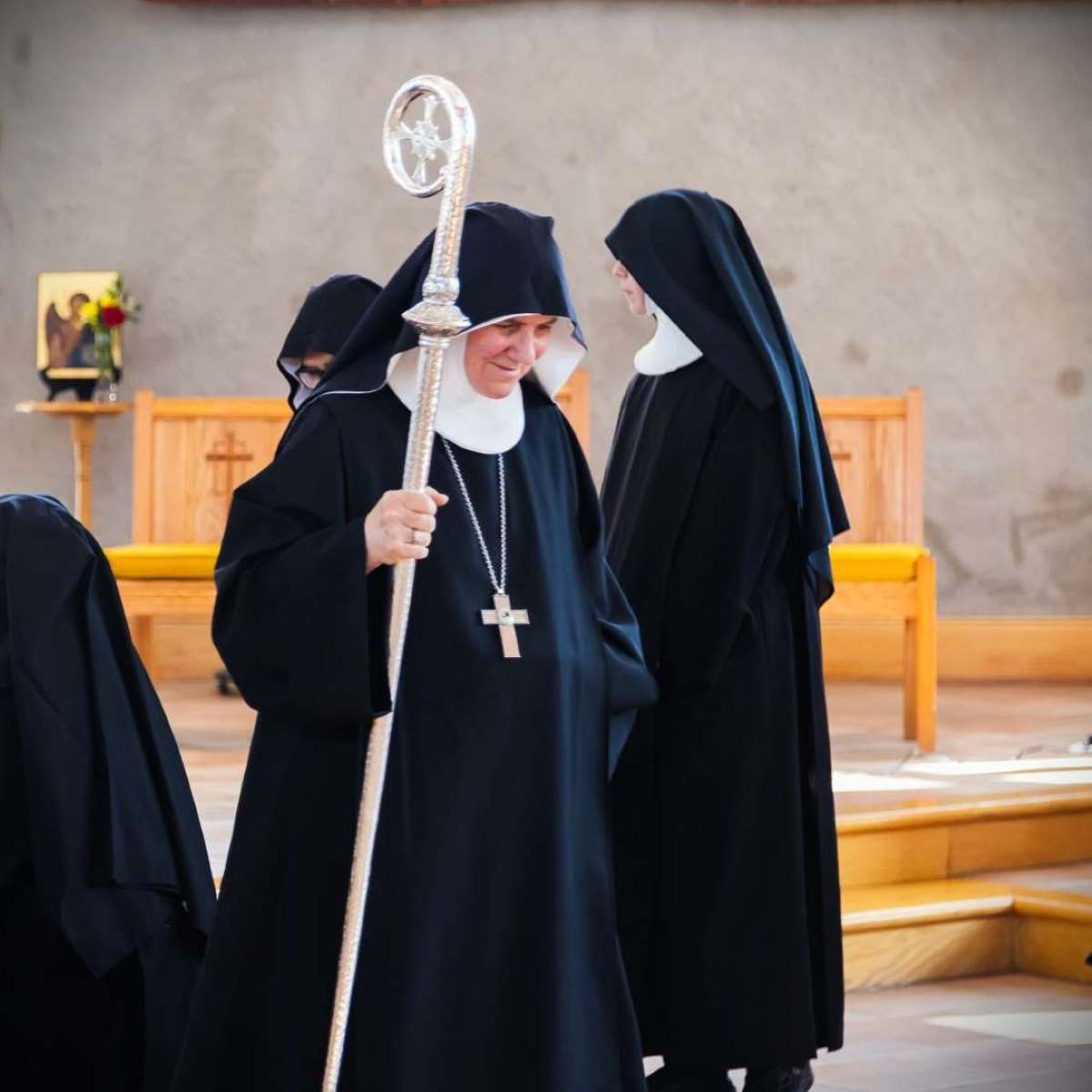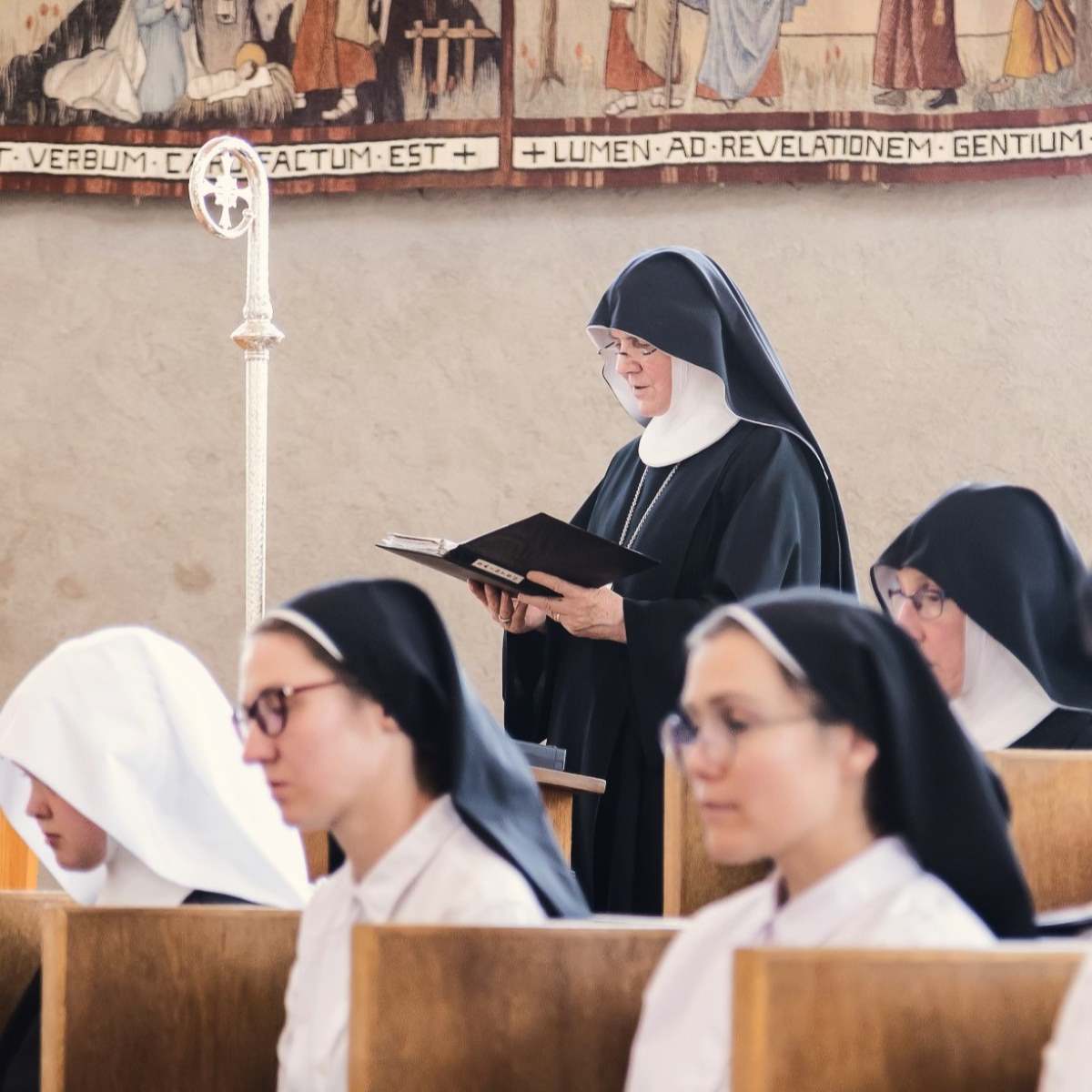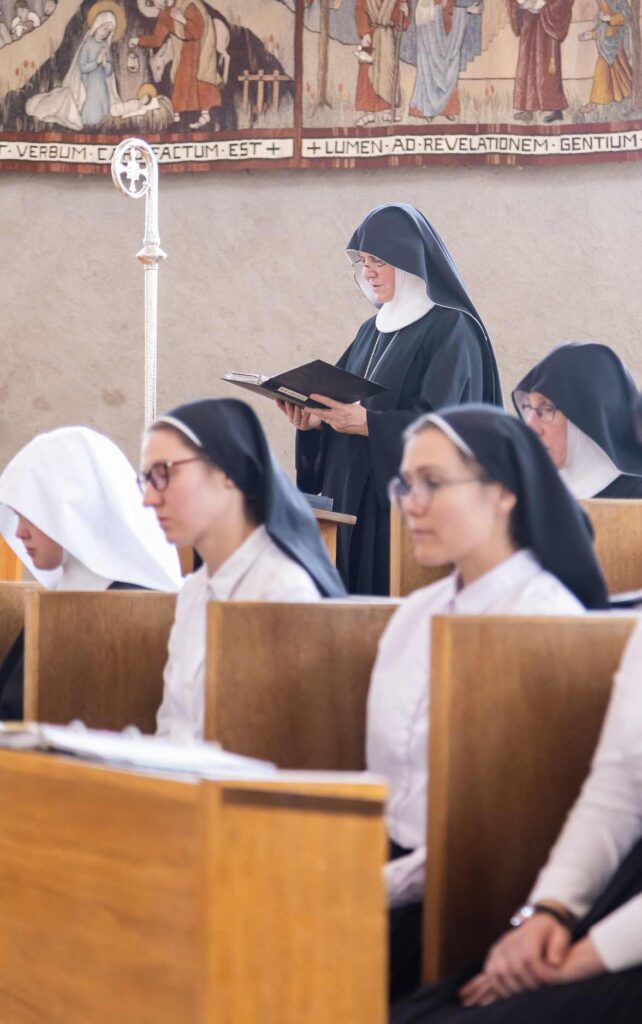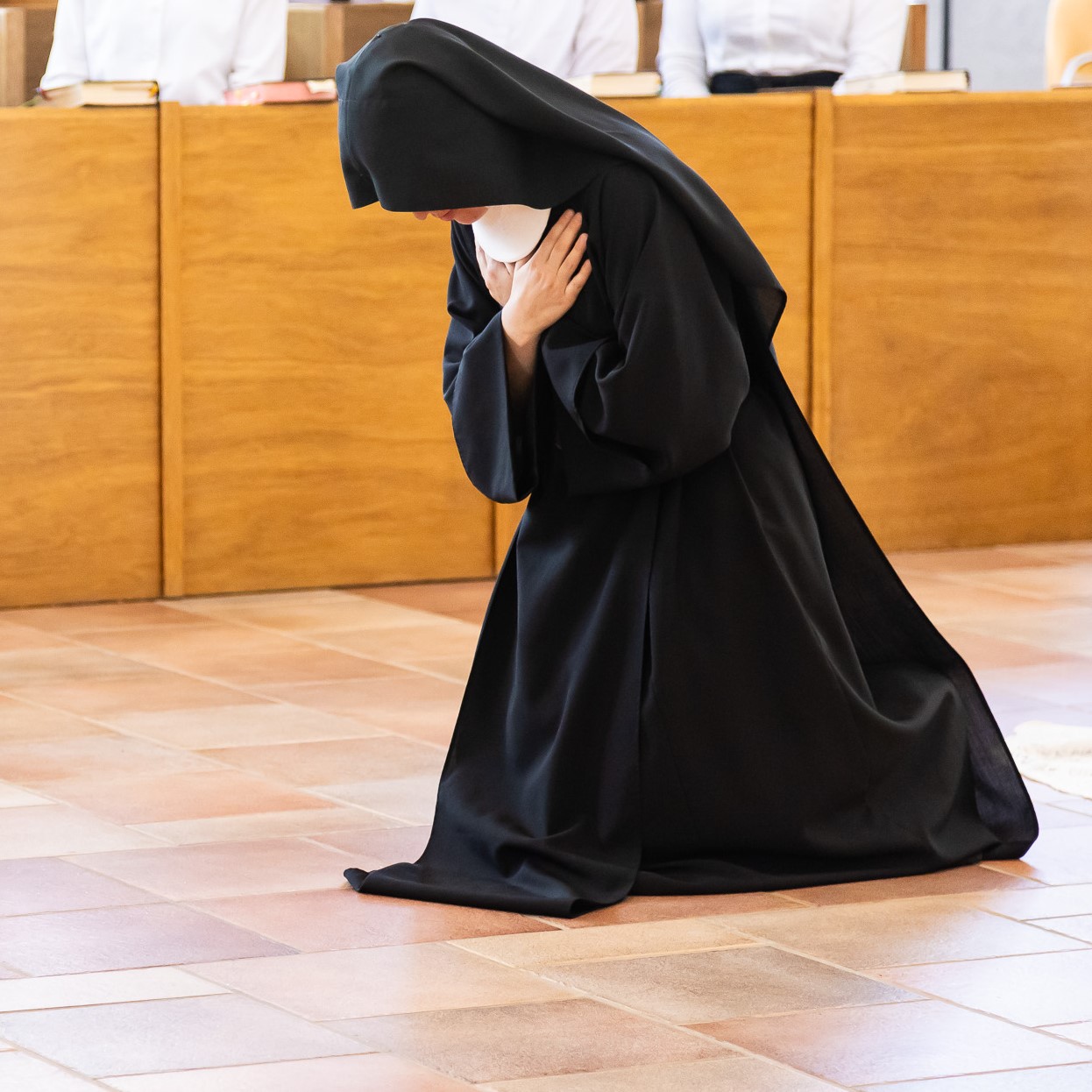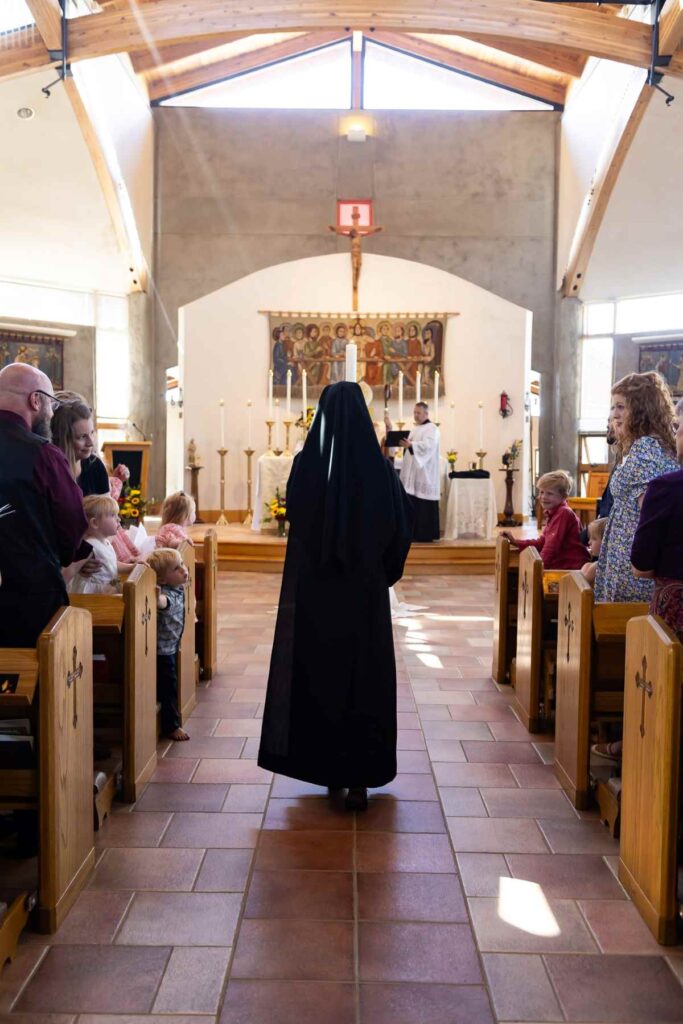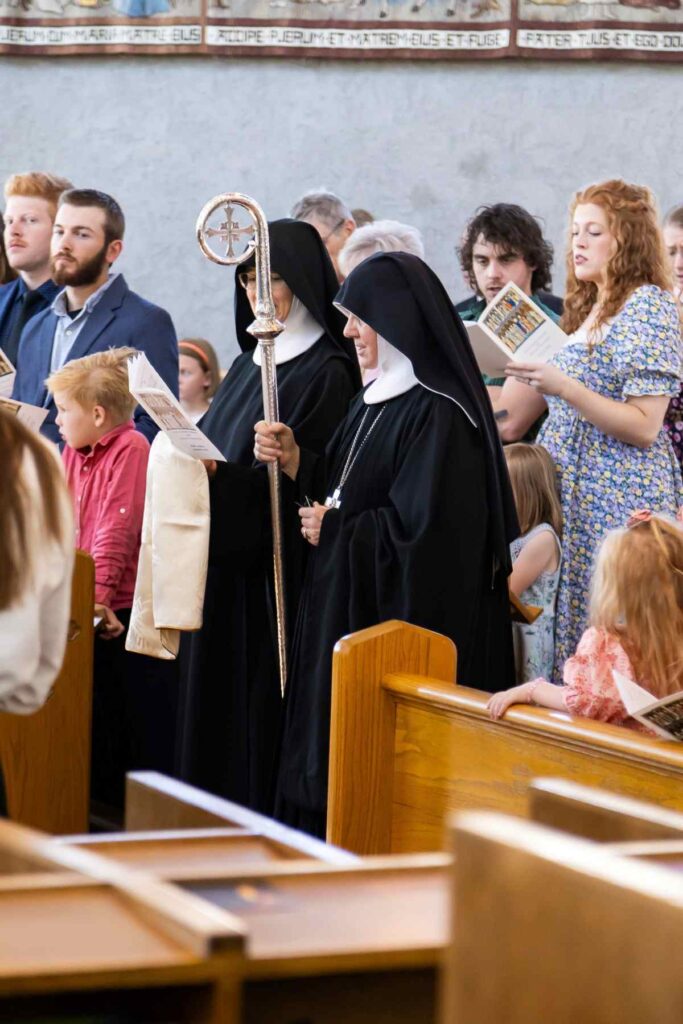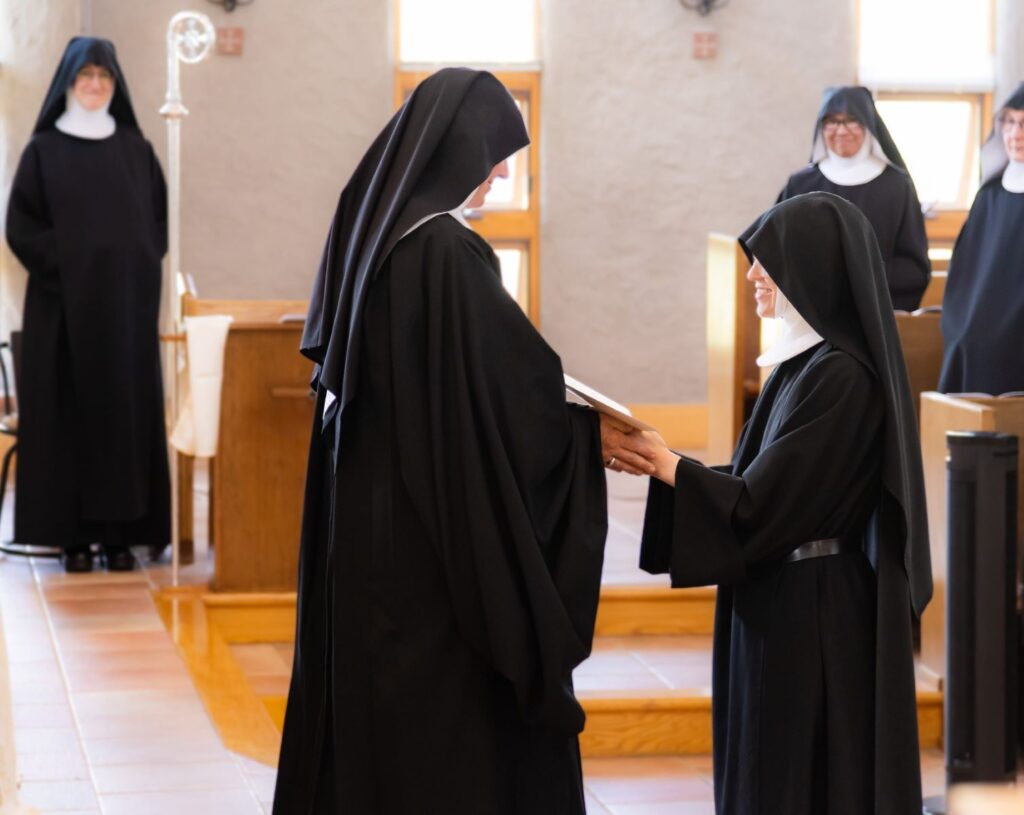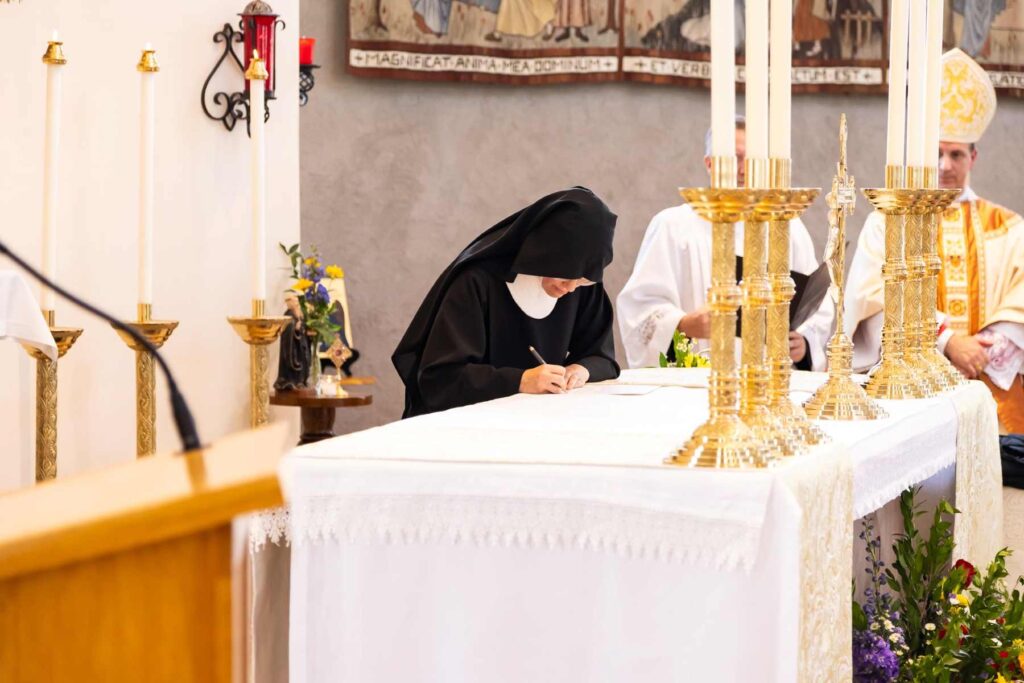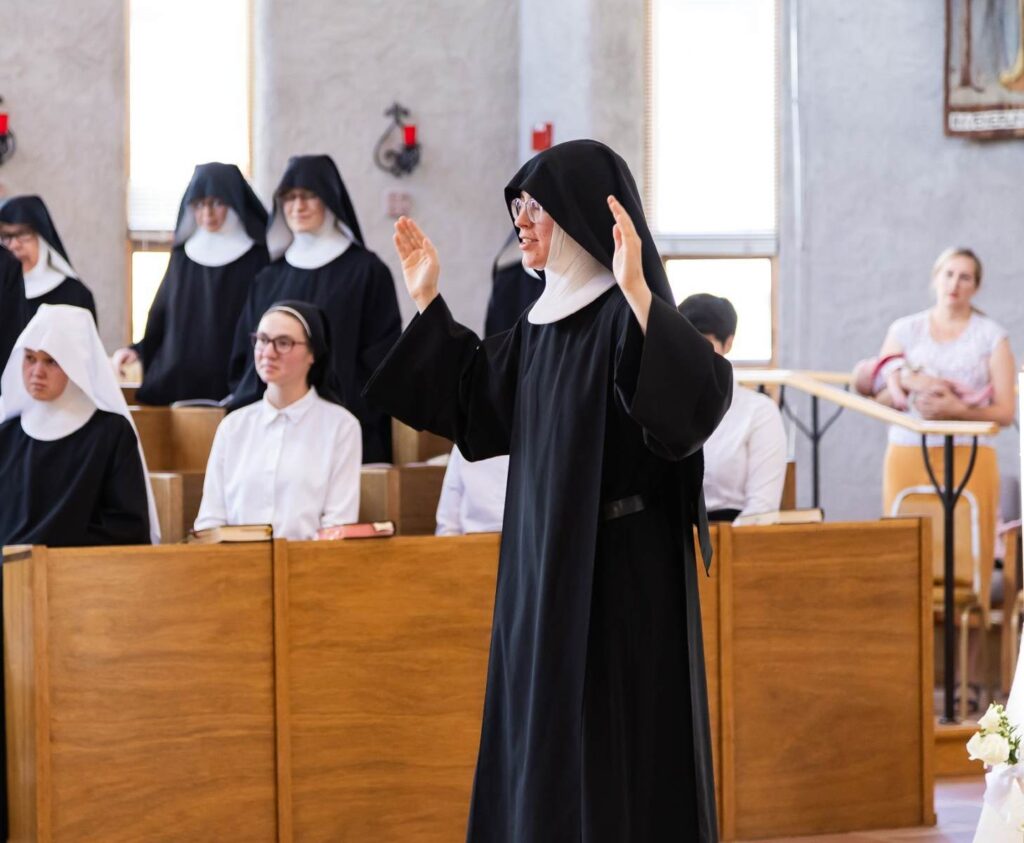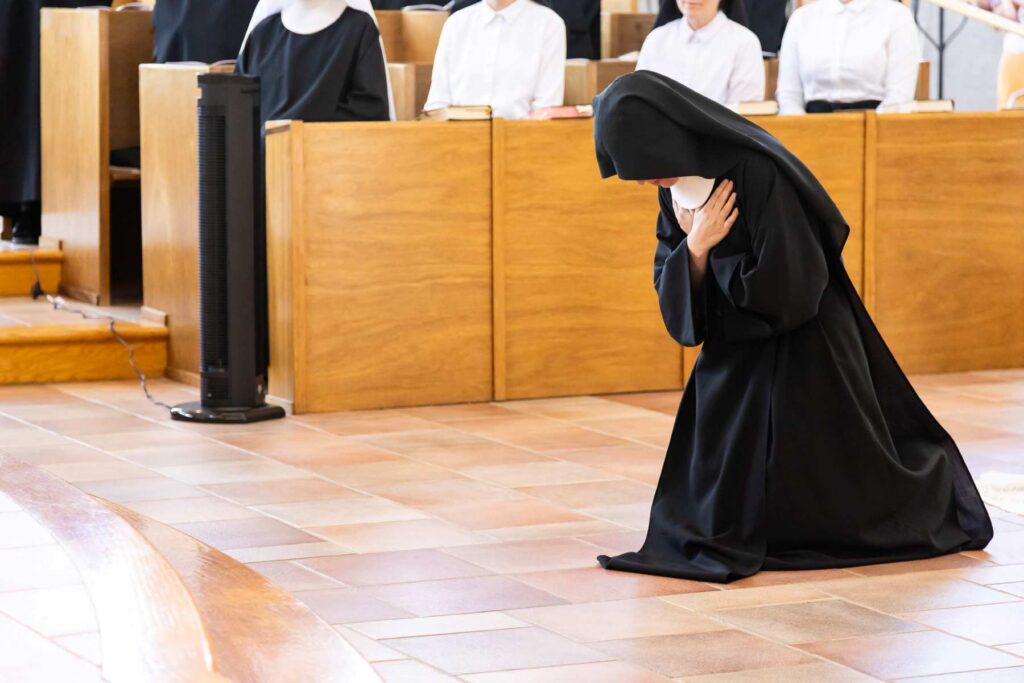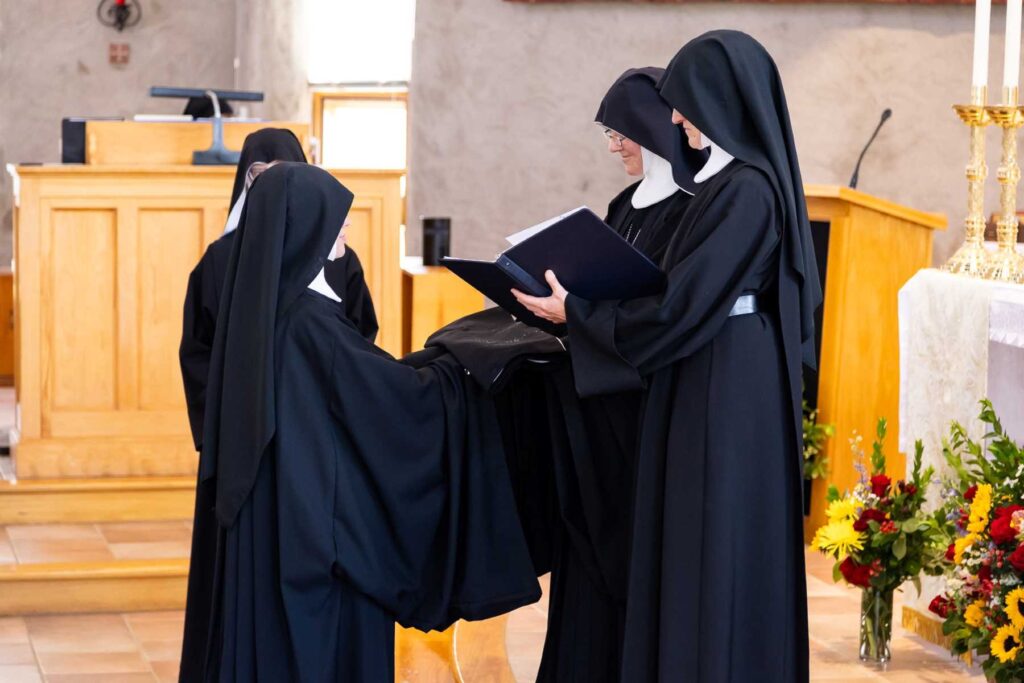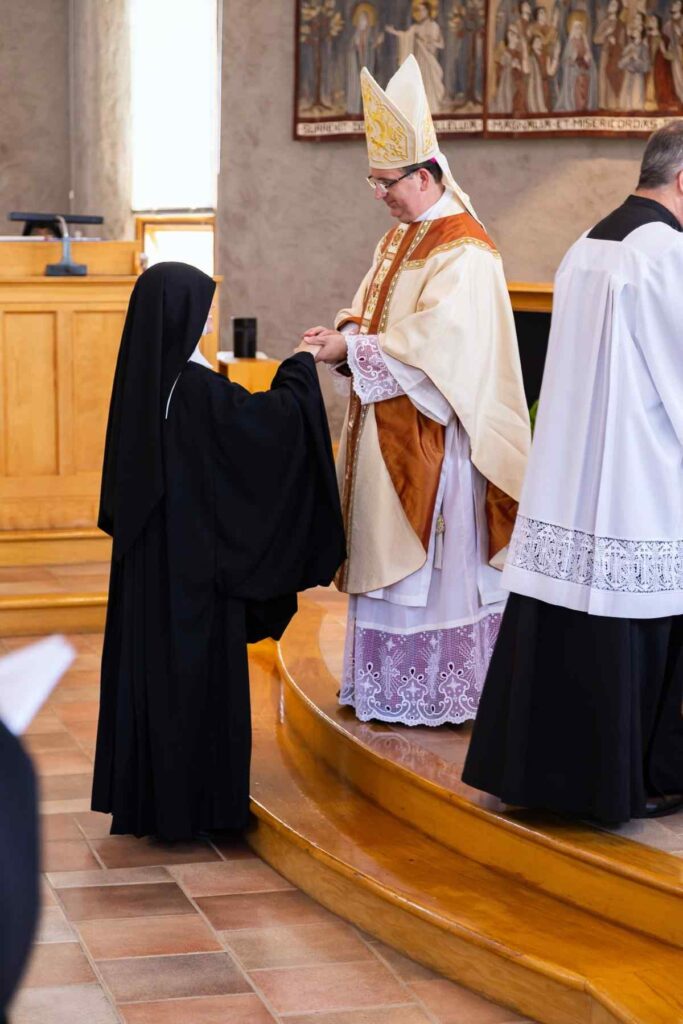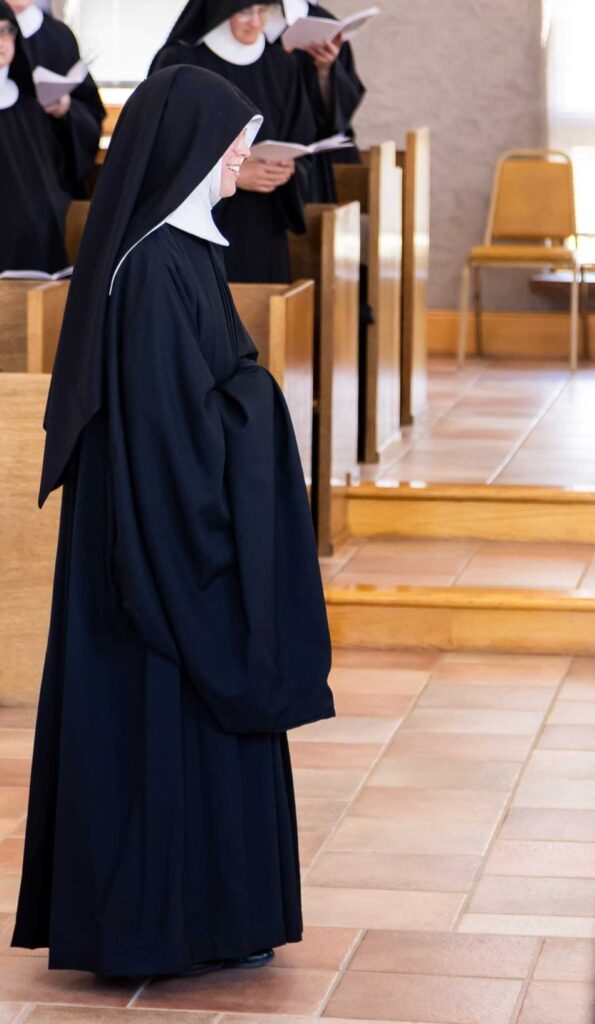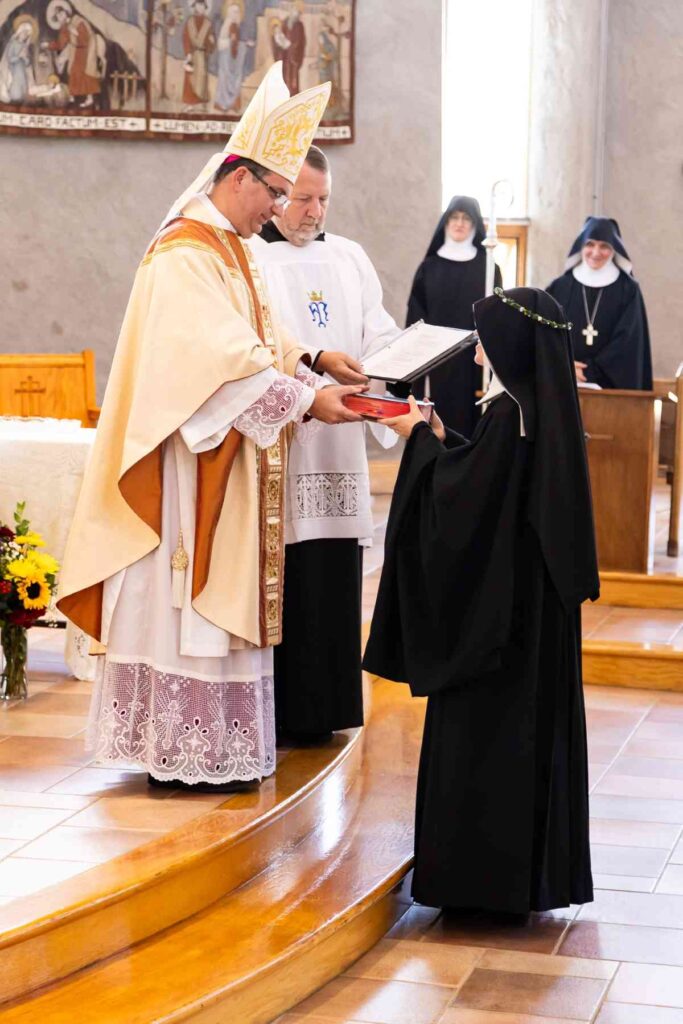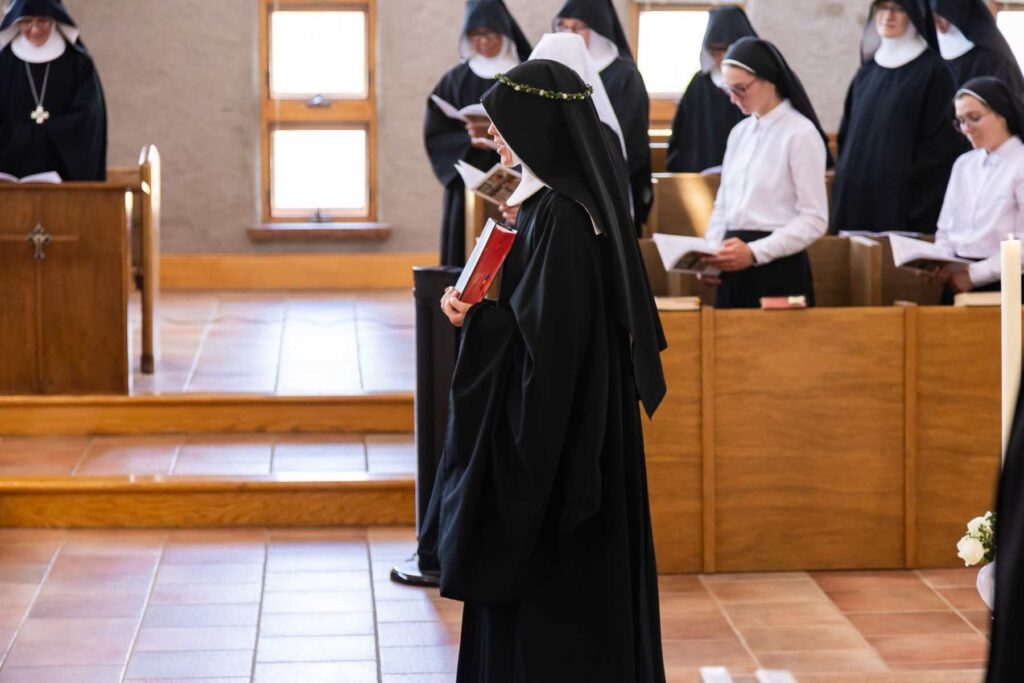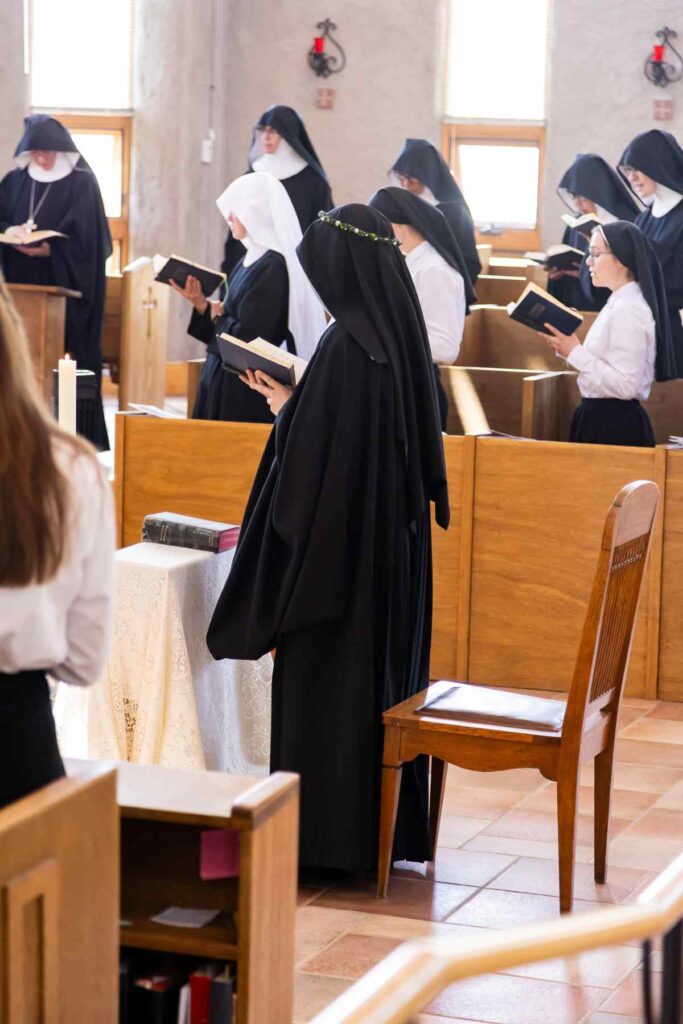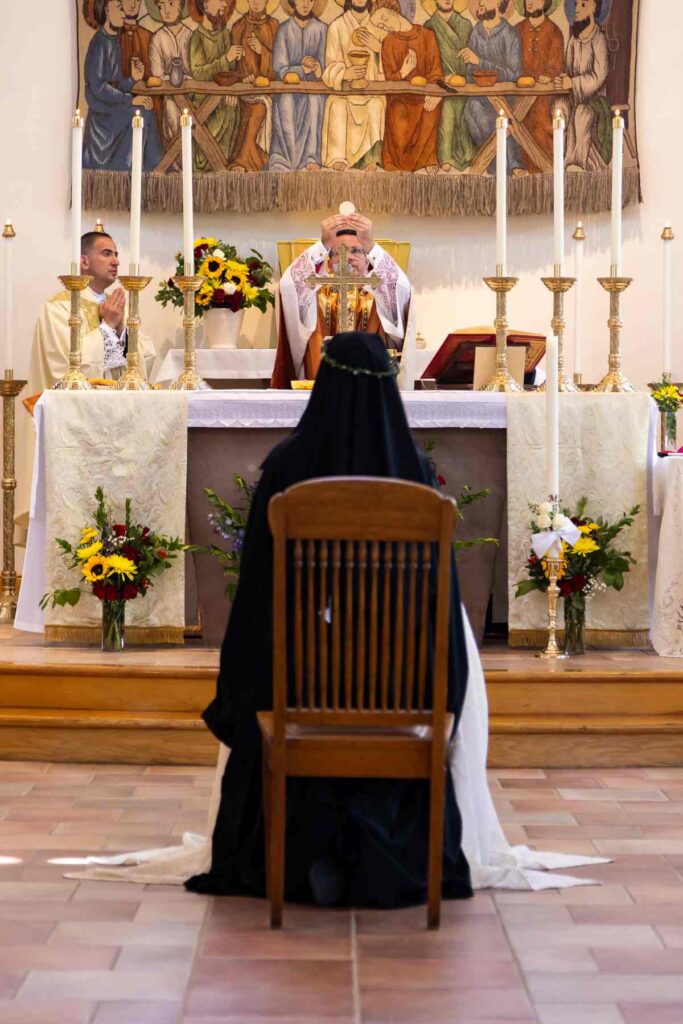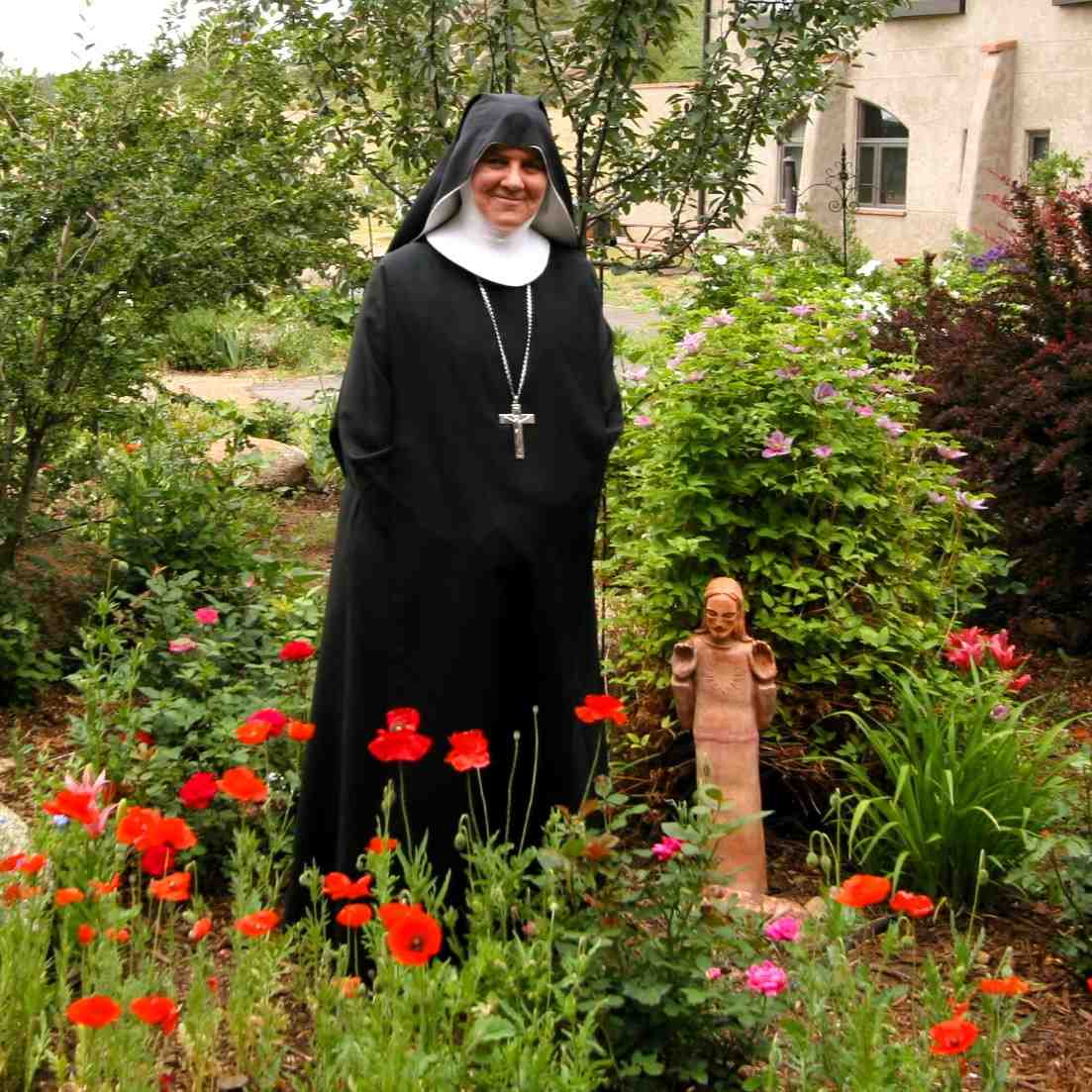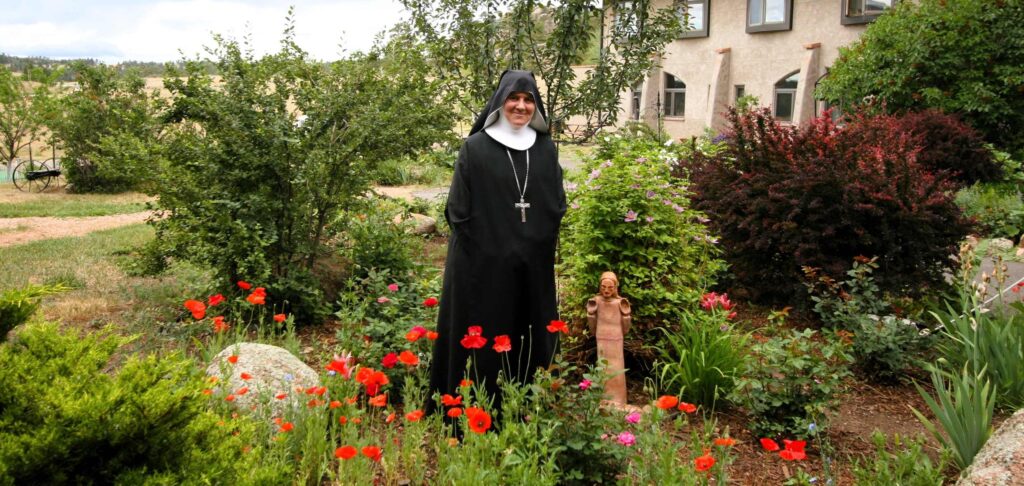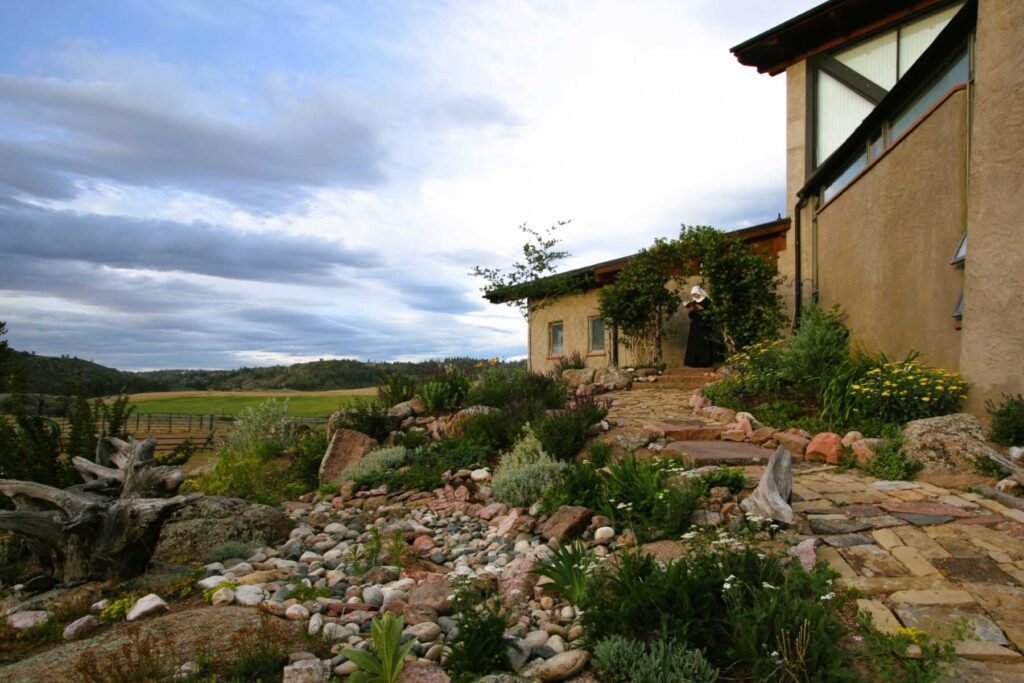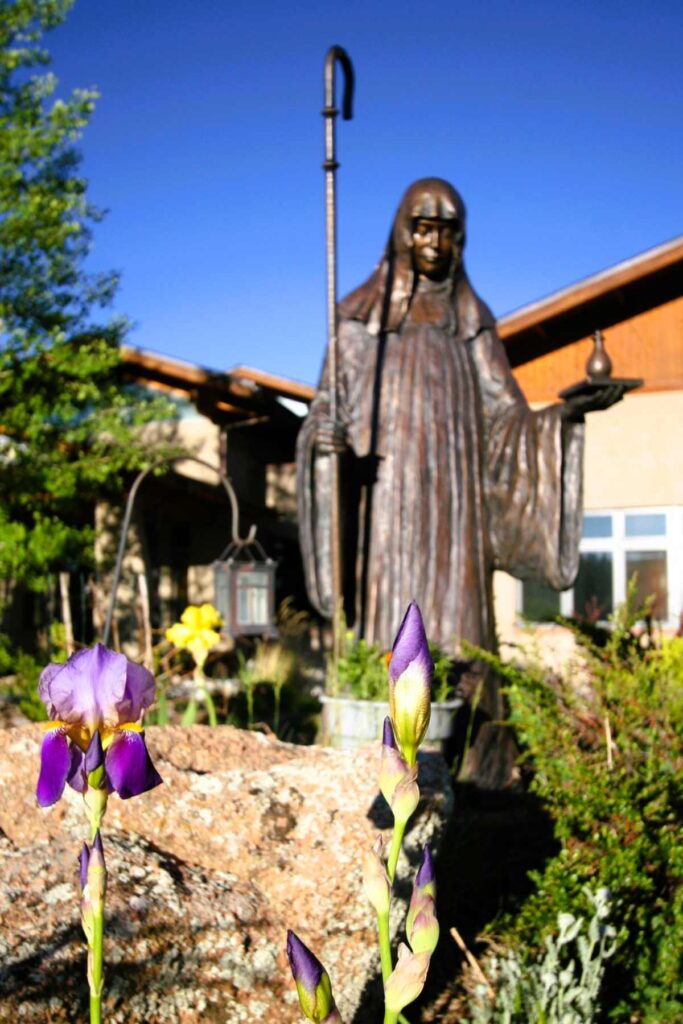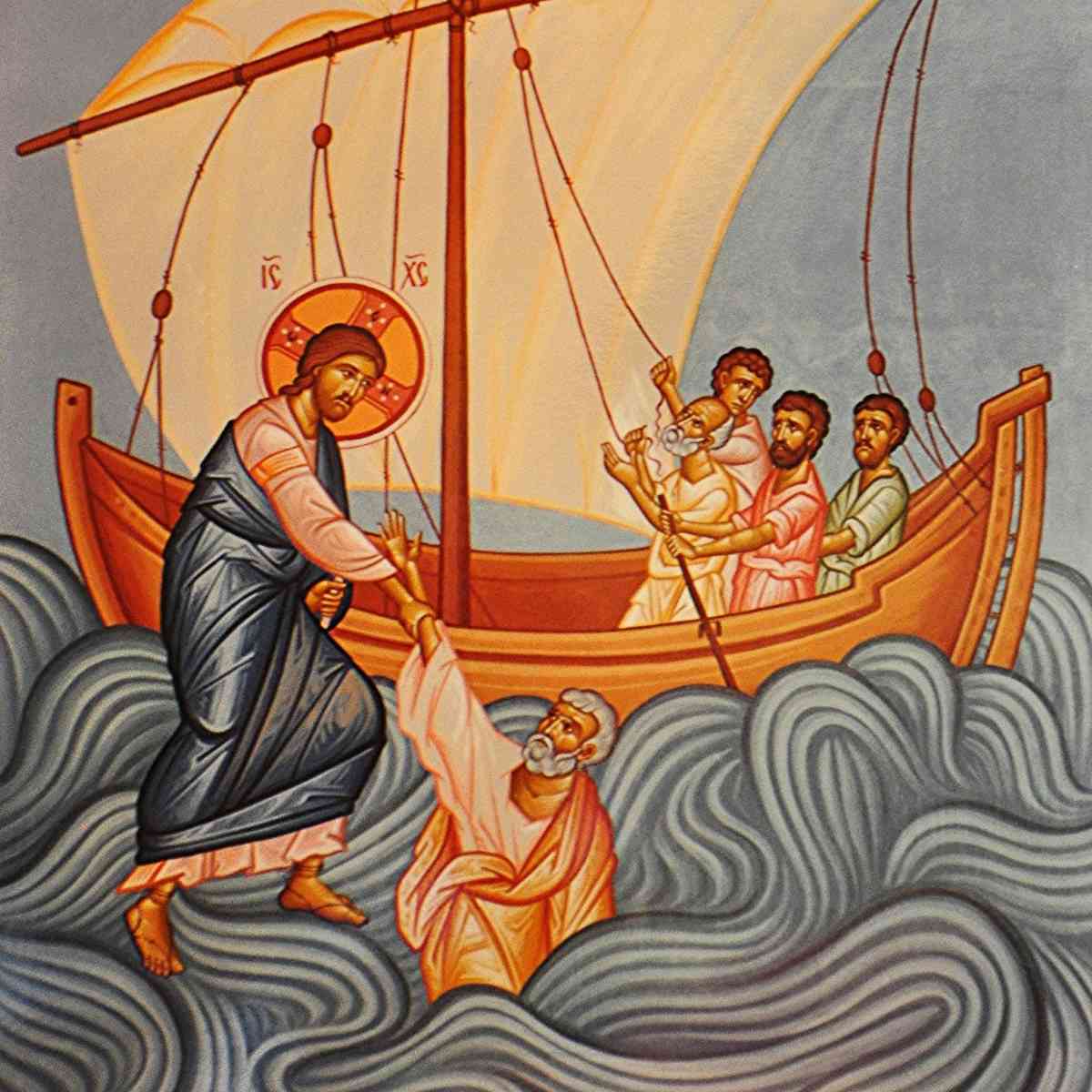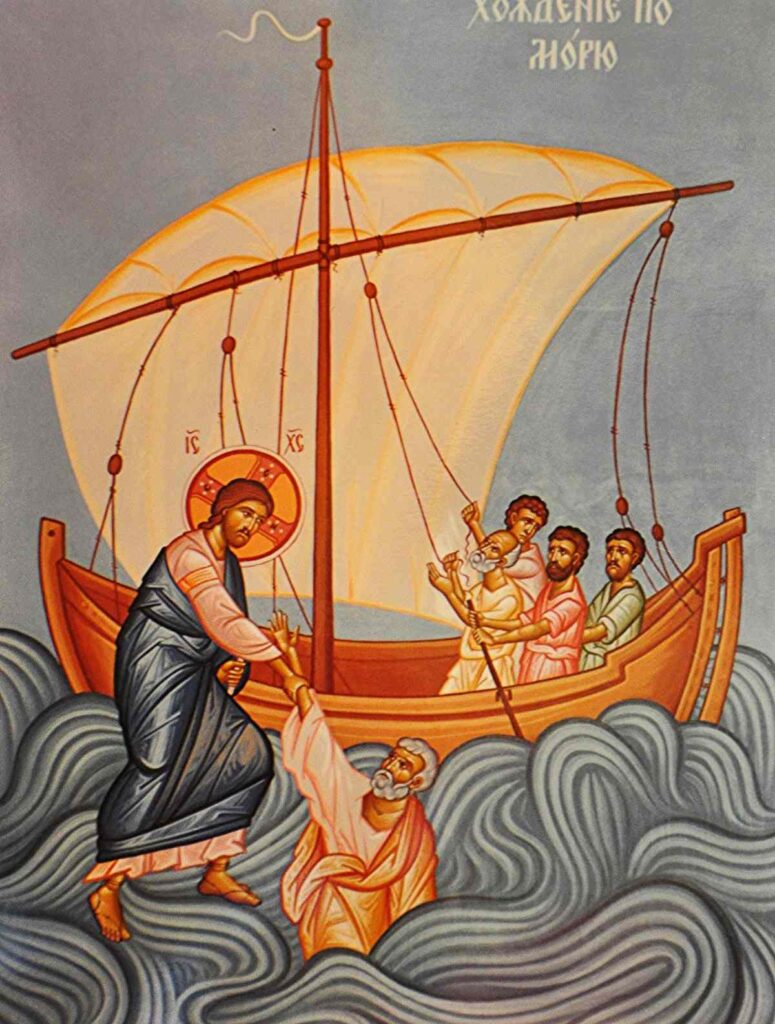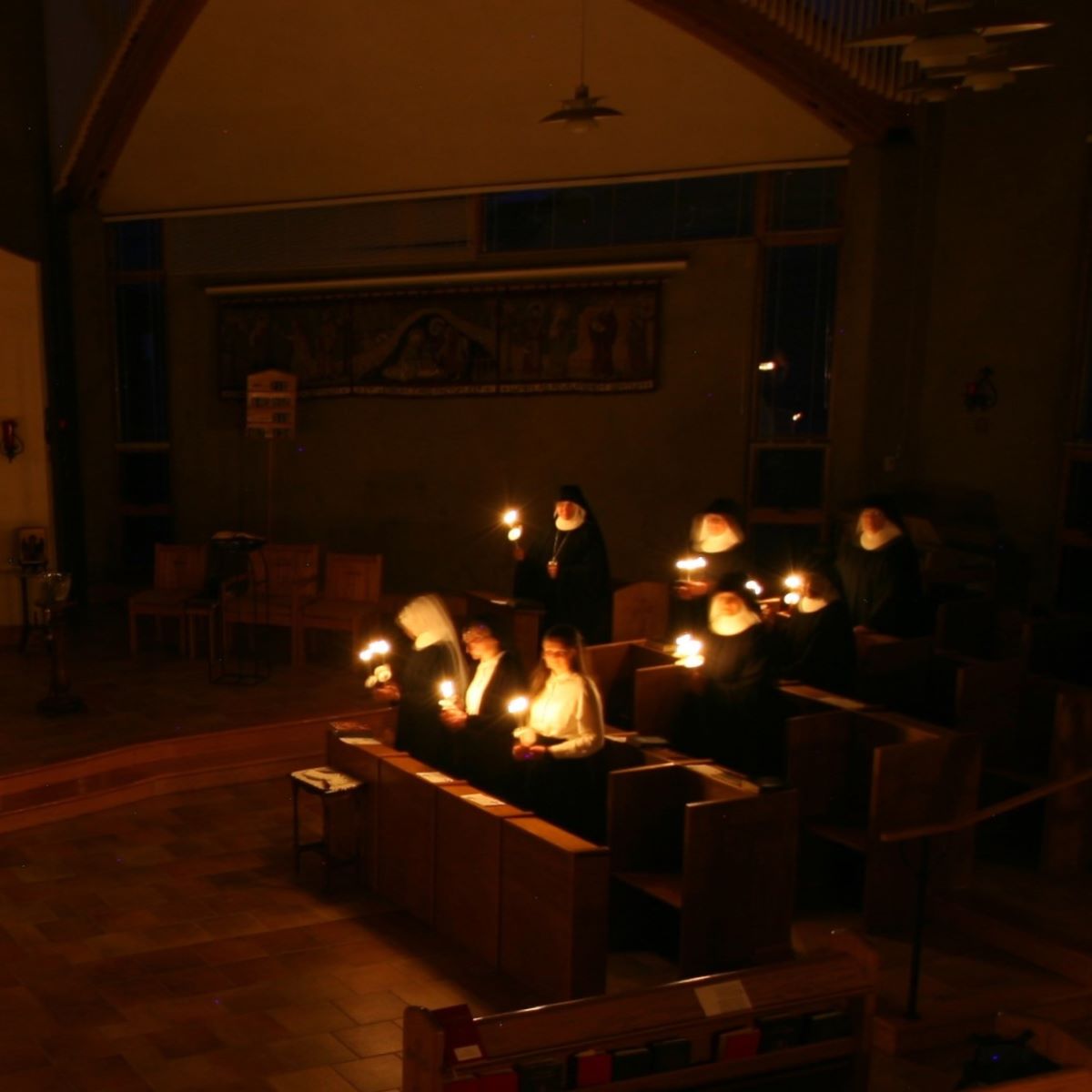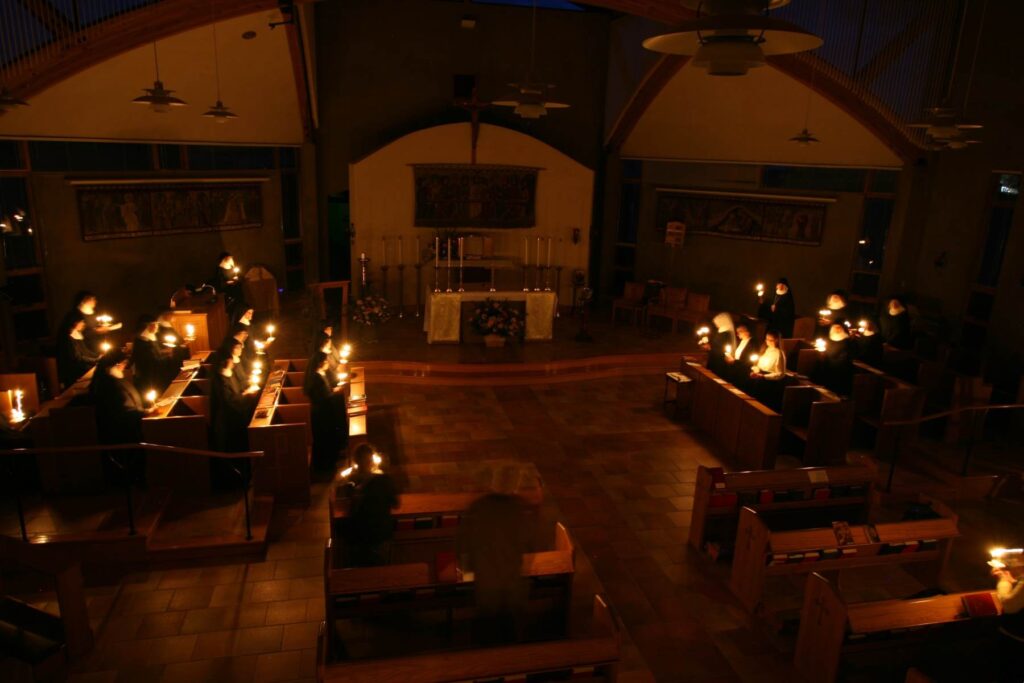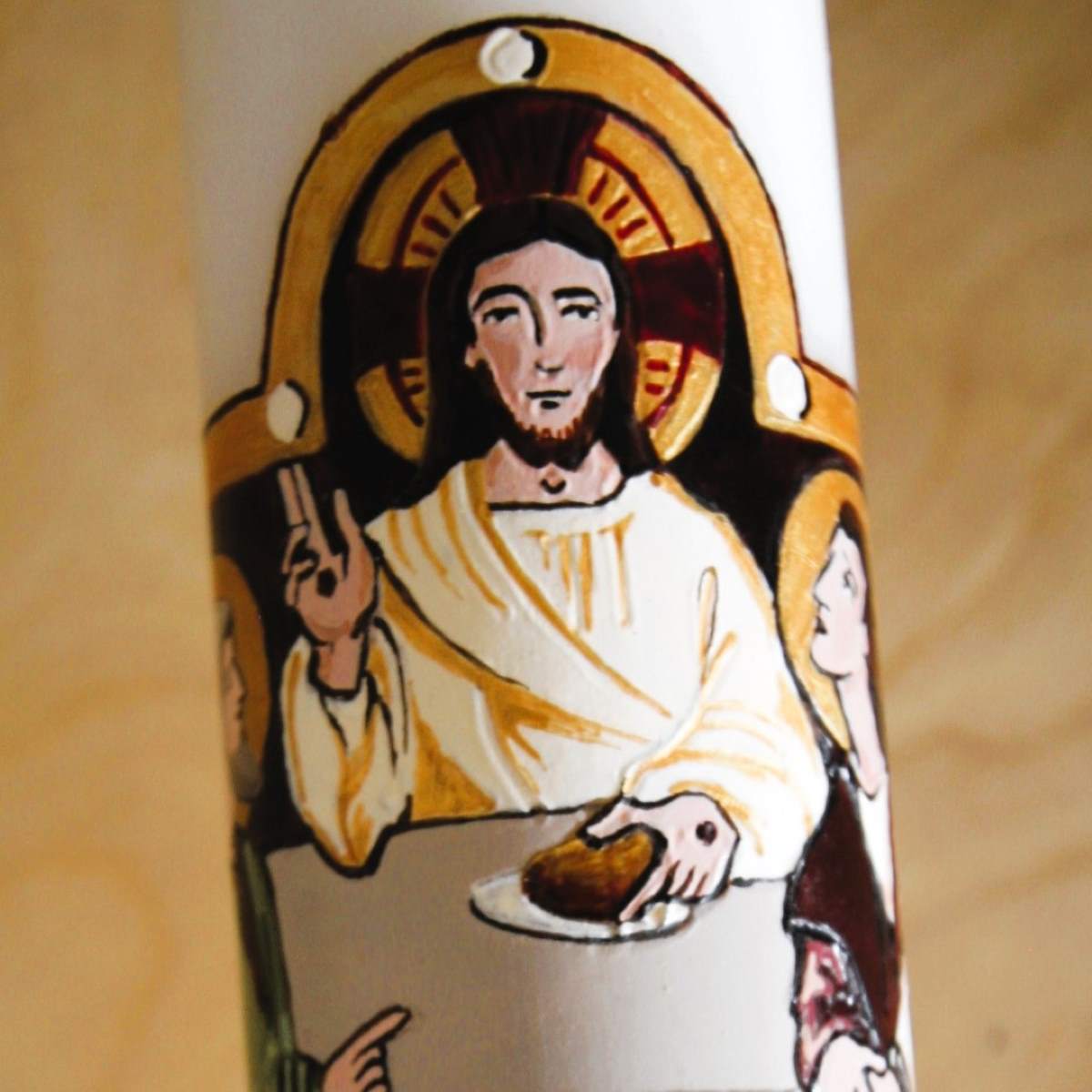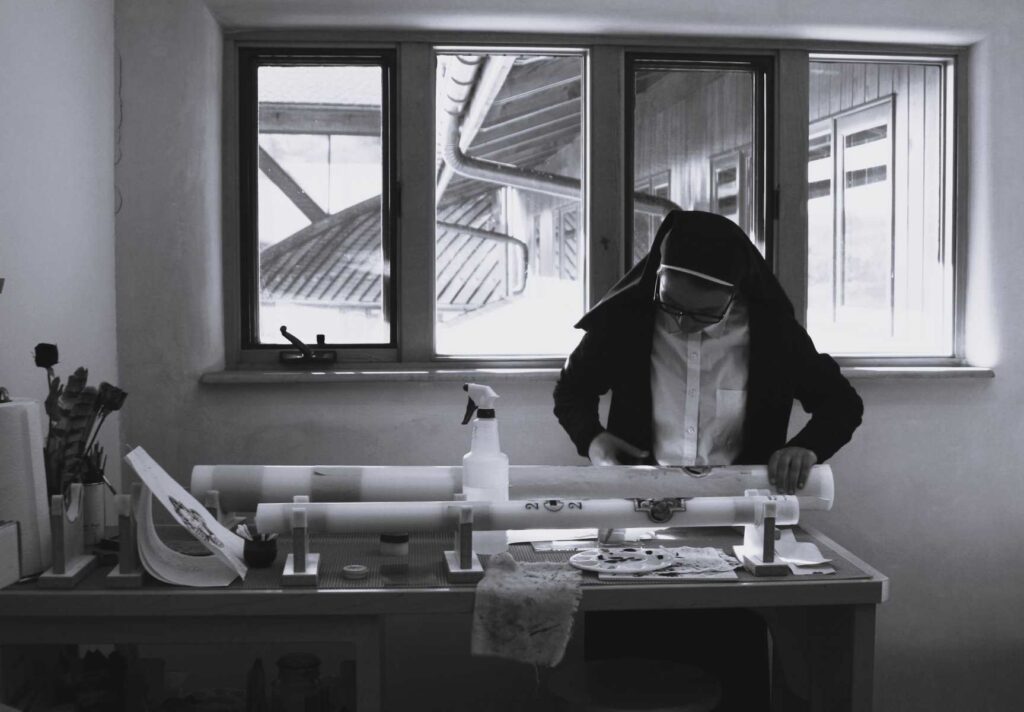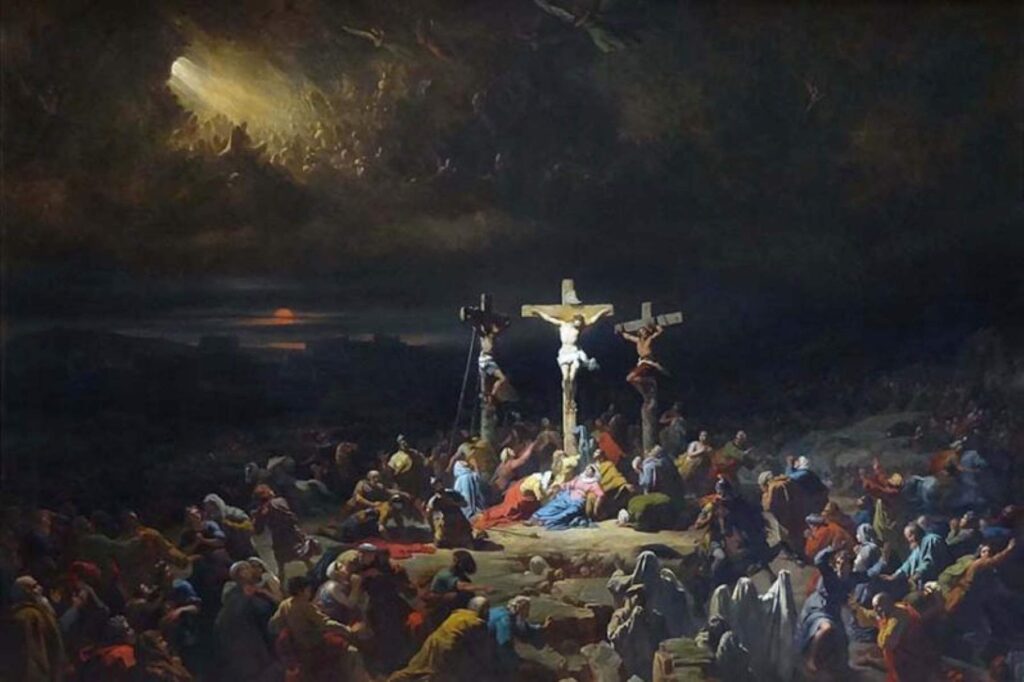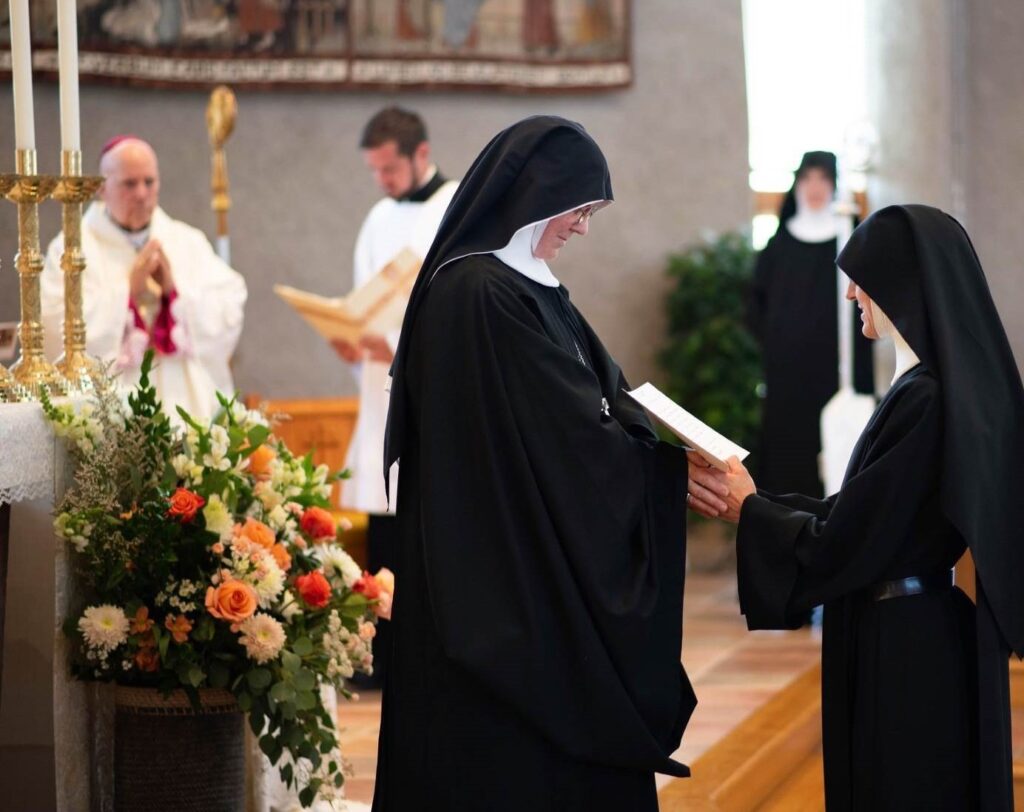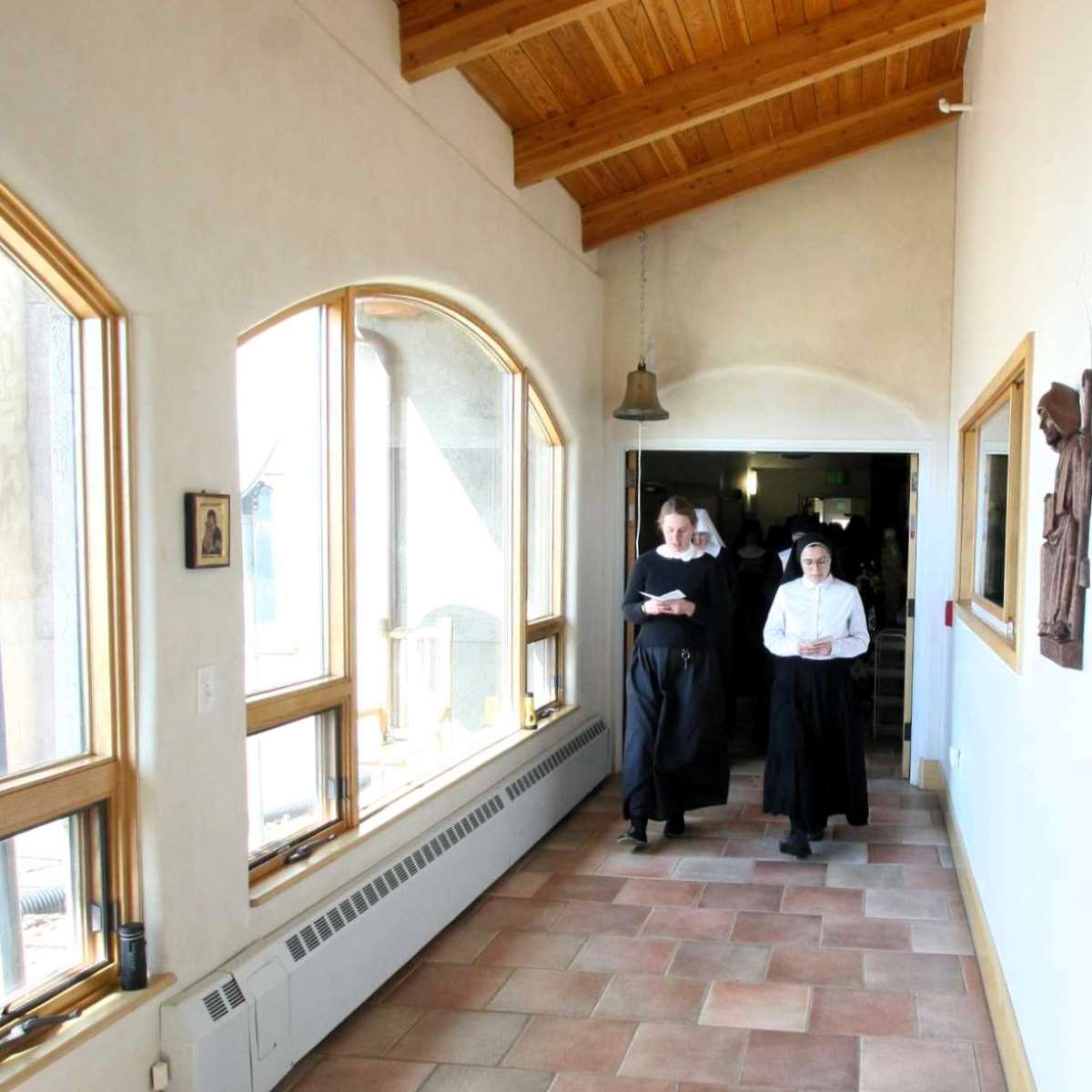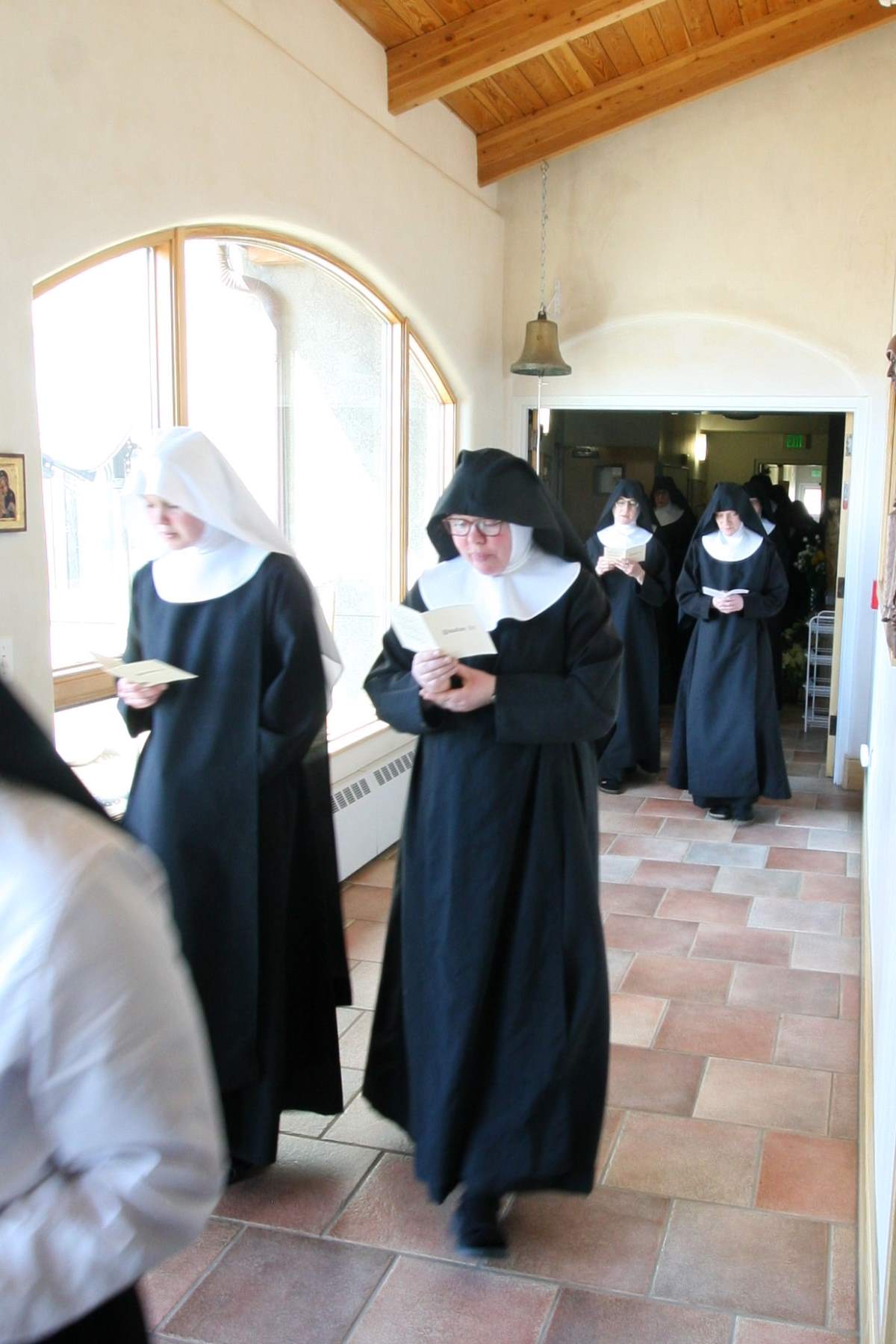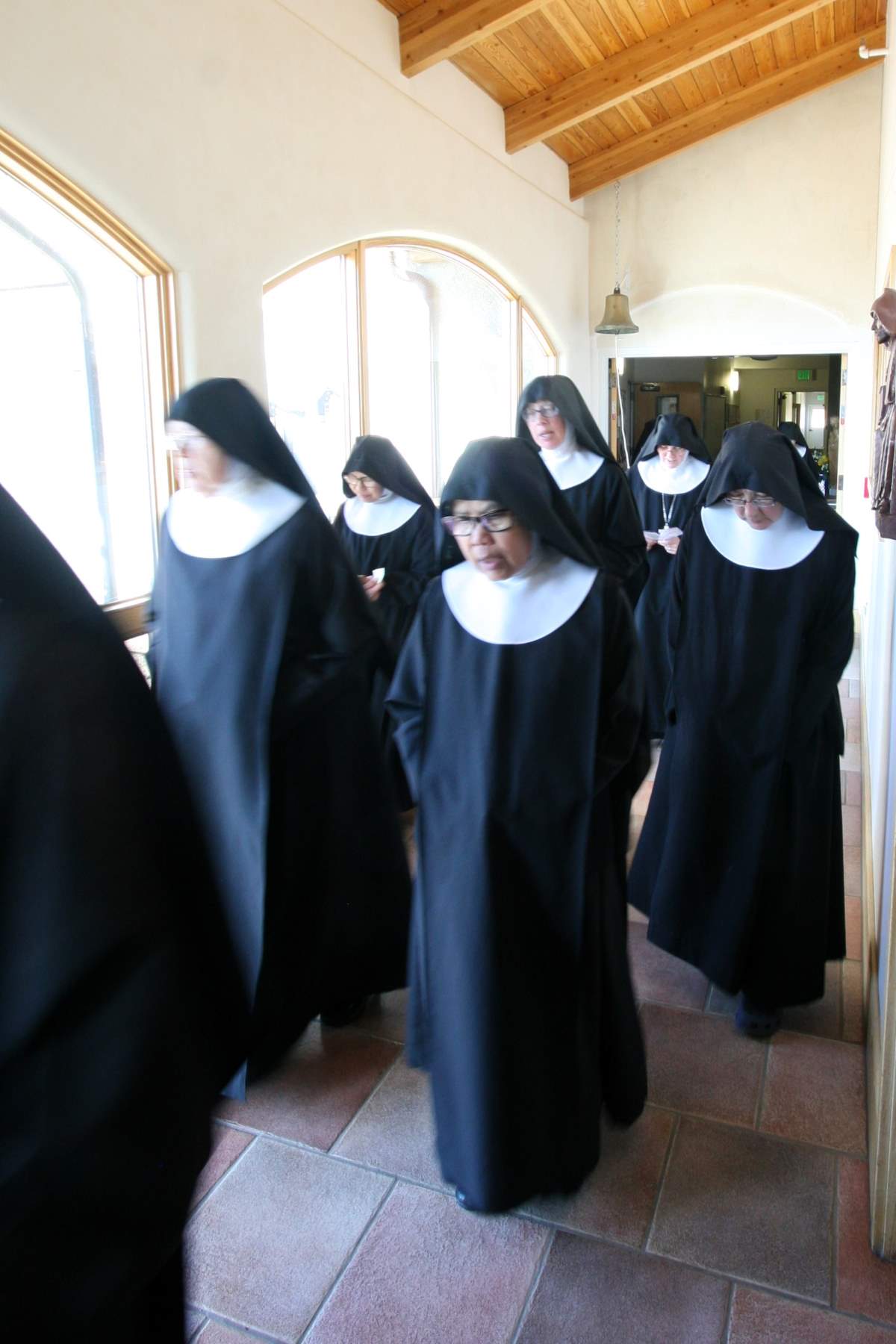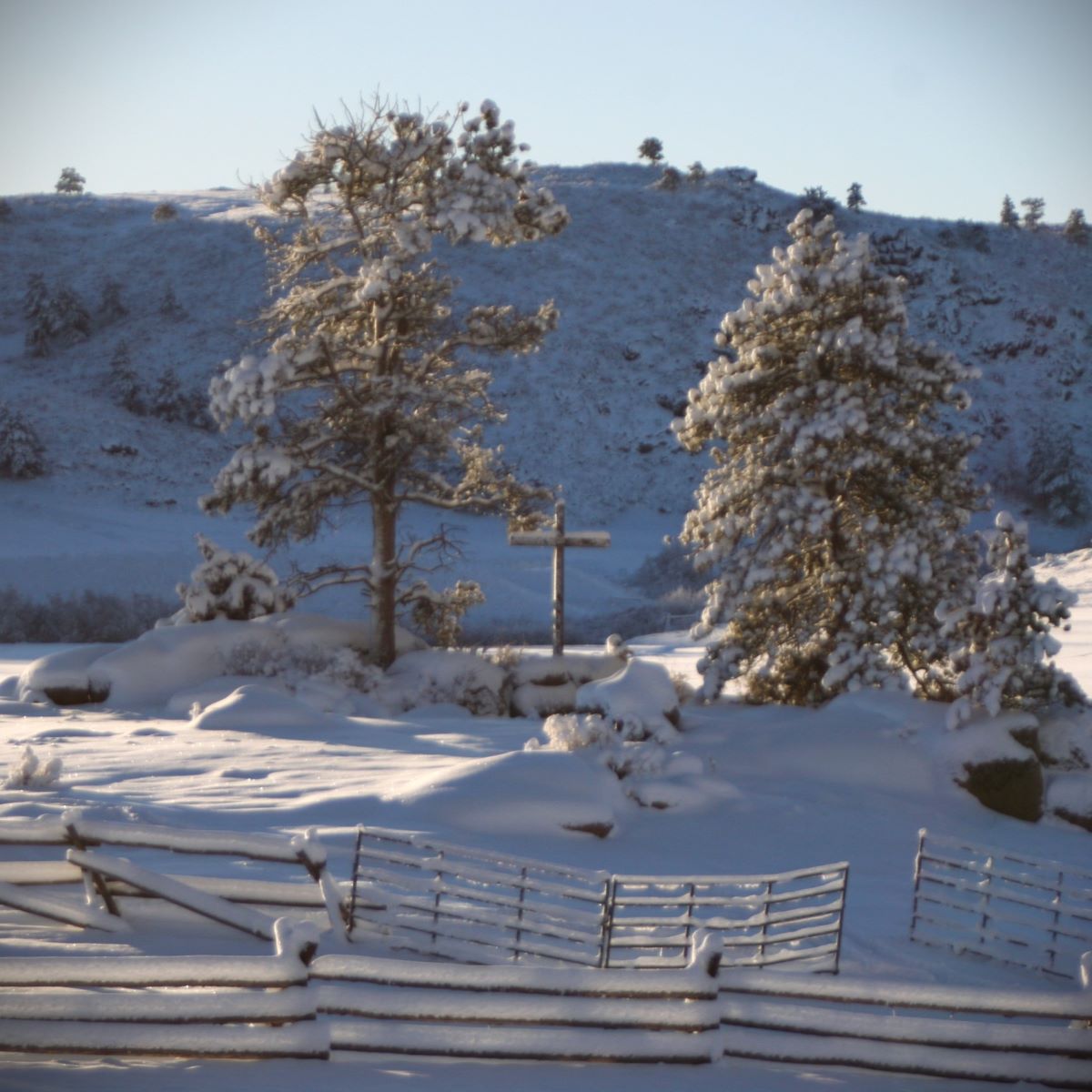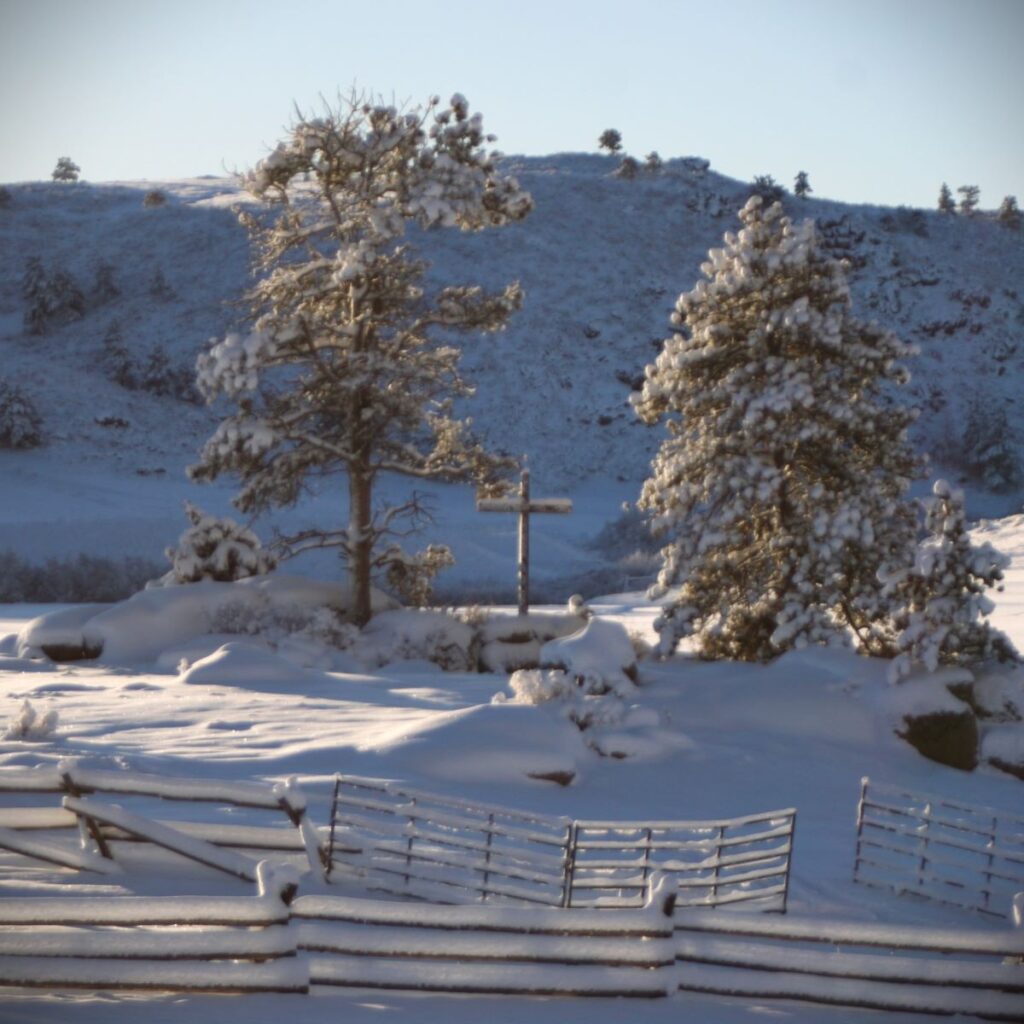A reflection by our Abbess, Mother Maria-Michael Newe, OSB
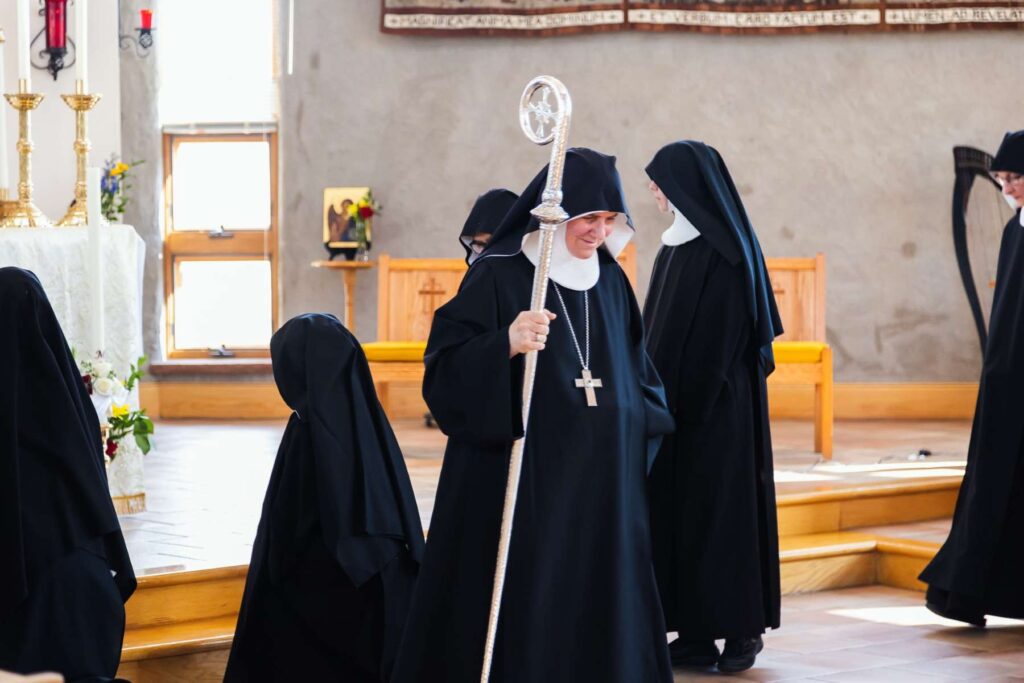
Photo by André Escaleira, Jr. / Denver Catholic
“For this very reason, make every effort to supplement your faith with virtue, virtue with knowledge, knowledge with self-control, self-control with endurance, endurance with devotion, devotion with mutual affection, mutual affection with love” (2 Peter 1:5-7).
You see the progression of good. Virtue is a progression. Throughout our lives, we strive to develop virtue, we develop to be faithful, we develop love. That’s why we take time every day to make an examination of conscience. “Where am I going? What am I doing? How am I treating things? Am I being faithful? Am I being obedient? Am I steadfast in the community?” Otherwise, we might progress in the opposite direction: downhill. “Well, I don’t want to do that today. Maybe not tomorrow either.” And then it becomes, “I am just not going to do that.” We can grow in an acceptance of doing less.
In the back of my copy of St. Benedict’s Holy Rule, it has the whole rule in a nutshell. I always go back to this and read it. It’s a great aid to making a good examination of conscience.
1. My son, willingly receive the admonitions of a loving father and put them into efficacious practice.
2. When you begin anything good, ask God by importune prayer to perfect it for you.
3. So live so that your actions profit you eternally.
4. By a life of patient self-denial we participate in the passion of Christ, hence also in his eternal kingdom.
5. We are all one in Christ.
6. Love the works of charity.
7. Obey for the following motives: because Christ is in your lawfully appointed superiors, because you belong to the service of Christ, because punishment awaits the self-willed, because a great reward is promised to the obedient.
8. Obey in the following manner: not for servile motives, not heartily, not negligently, not with dislike, not with unbecoming words.
9. An unguarded tongue leads to sin.
10. Humility consists in avoiding sin, not loving one’s own will, obeying one’s lawful superiors for the love of God, patiently bearing hardships, acknowledging one’s faults, being content with circumstances, not esteeming oneself more than others, avoiding singularity, curbing boisterousness, being aware of forwardness in conversation, speaking well, modestly, and humbly, shaping our exterior according to the exterior of Christ.
11. Prayer to be efficacious need not be long or wordy; it should however be contrite and fervent.
12. Be ready to pray when it is time.
13. If you care not to amend your evil ways, you are not worthy to remain with Christ’s disciples.
14. Be neither sordid nor negligent.
15. Be not inordinately attached to your possessions.
16: Never murmur against authority.
17. See Christ in the sick and act accordingly; and if you are sick yourself do not grow peevish.
18. Be aware of excess in food and drink.
19. Place God’s things always first.
20: Do everything at its proper time.
21. Idleness is the enemy of the soul.
22. Spend Sunday with profit for the soul.
23. Never do anything unbecoming in Church.
24. Do not be a slave to clothing.
25. Do your work carefully, always intending the honor and glory of God.
26. Beware of ever cheating others.
27. The greater the dignity, the greater the obligation of virtue.
28. Always aim for some spiritual progress.
29. Be polite to others.
30. Read this rule frequently.
31. Confide in God for help in your occupations.
32. Gladly do favors for others and take correction in the right spirit.
33. Let your zeal always be such as leads to a good and profitable end.
34. Read diligently the Holy Scriptures, the lives of the saints, and other spiritual books.
So, this gives us something to work on every day. There’s always something we can do a little better. And if we start heading in the wrong direction, we can count on God to send us warnings. God sends us encouragement. He knows we need a touch of encouragement. He knows what will make us laugh a little. You can see those who can laugh at themselves, and there’s such a tenderness—There’s a tenderness of heart even towards themselves. There’s not that harshness. If we can laugh a little bit at ourselves, all of a sudden there’s a lightness and we aren’t so hard on others, either. As we grow holier, we should become lighter of heart, because we forget ourselves. The heaviest person to carry is ourselves, and so try to remember that God wills for us to grow in holiness with a smile. We will become lighter if we let Him carry us.

